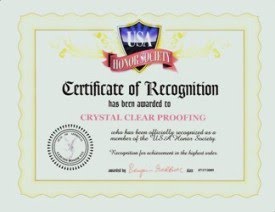Two of the most common words used incorrectly, both in written material and in speech, are "me" and "I."
Technically, "I" is a nominative pronoun used as a subject of a sentence, while "me" is an objective pronoun, used as an object. The problem usually arises when connecting objects in a sentence. "I" is not an objective case word, but it is used simply because to most people it just sounds better.
Using "I" works for the nominative case when you and the other person are subjects of a sentence; however, if you and the other person are objects of the sentence, using "I" is not correct.
For example, "Mary and I are going to the conference" works. "You" and "Mary" are subjects of the sentence. Remove "Mary" and you have, "I (am) going to the conference."
Being objects in a sentence changes correct structure. Simply leave out the second object(s), or person(s). For example:
You may be tempted to write or say, "Would you like to join Mary and I at the conference?" By removing the second object (Mary) you have, "Would you like to join I at the conference?" Now try, "Would you like to join me at the conference?" It's easy to see that the proper sentence should be, "Would you like to join Mary and me at the conference?"
It really is just as simple as removing that second object. Let's try it again:
"Please explain proper word choice to Christine and I."
"Please explain proper word choice to Christine and me."
Remove the second object (Christine) and you have: "Please explain proper word choice to I," or, "Please explain proper word choice to me." See how easy it is to recognize the proper sentence?
"Please explain proper word choice to Christine and me."
Of course there are some instances where you can avoid your own internal dilemma by simply using the first-person plural and stating, "Would you care to join us at the conference?' or, "Please explain proper word choice to us."
Friday, April 20, 2012
Tuesday, January 31, 2012
Pronoun Tips

Pronouns take the place of nouns.
Subject Pronouns: I, you, he, she, it, we, they
Object Pronouns: me, you, him, her, it, us, them
Rule: Use a Subject Pronoun (also called Nominative Case), not only as the subject of a sentence, but after 'to be' verbs when the pronoun renames the subject.
'To be' verbs: is, are, was, were, will be, may be, may have been
Example: He is my friend.
'He' is the subject of the sentence, so use a subject pronoun.
Example: Enrique and she are friends.
'Enrique' and 'she' are the subjects of the sentence.
Example: It is I who called.
I comes after the 'to be' verb 'is' and renames the subject 'it.' Therefore, use the subject pronoun.
Rule: Use an Object Pronoun (also called Objective Case) when the pronoun is the direct object, the indirect object, or the object of the preposition.
Example: Ella met him at the restaurant.
'Him' is the direct object.
Example: Ella will give him his money back.
'Him' is an indirect object because you can mentally put the word 'to' in front of it. 'Money' is the direct object.
Example: Between you and me, this will never work.
'You' and 'me' are the objects of the preposition 'between.'
Rule: Use reflexive pronouns—myself, himself, herself, itself, themselves, ourselves, yourself, yourselves—to refer back to another noun or pronoun in the sentence.
Correct Example: I did it myself.
Incorrect Example: Please give it to Roger or myself.
In this sentence, 'myself' does not refer back to another noun or pronoun.

Source: Grammarbook
Subscribe to:
Comments (Atom)
































































